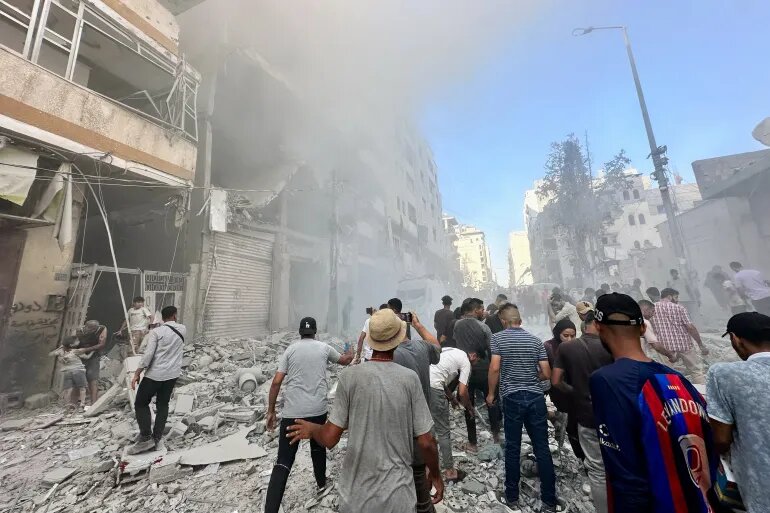After two years of regional inaction, Qalibaf calls on Muslim states stop Israel's Gaza genocide

TEHRAN – Iranian Parliament Speaker Mohammad Baqer Qalibaf on Wednesday called on Muslim countries to unite in condemning Israel’s ongoing war on Gaza and to take concrete action to halt the Zionist regime’s “killing machine.”
“Muslims must stand together, with one voice and without hesitation, to denounce the genocide in Gaza,” Qalibaf said in an open session of parliament. “Governments in the Muslim world must follow their people’s lead and adopt practical steps to stop Israel’s crimes.”
Qalibaf’s remarks coincided with Unity Week, which marks the birth anniversary of Prophet Muhammad (PBUH). He said the occasion should remind Muslims of the Prophet’s mission to establish a community based on faith, rationality, and compassion. “Unity is not a political tactic, but a religious and strategic necessity,” he stressed. “Today, its clearest expression must be seen in the struggle against the Zionist regime, which is the greatest evil of our time.”
The call for unity came as fresh controversy erupted over reports of a postwar blueprint for Gaza prepared during the Trump administration.
According to The Washington Post, a 38-page proposal titled the Gaza Reconstitution, Economic Acceleration and Transformation (GREAT) Trust envisioned removing Gaza’s more than two million residents and converting the war-ravaged enclave into a hub for luxury resorts and high-tech industries.
The plan, drawn up with input from Israeli businessmen and U.S. consultants, outlined options for “voluntary” departures abroad or confinement to so-called secure zones within Gaza during a decade-long rebuilding phase. Incentives for leaving included cash payments, temporary housing, food support, and digital land “tokens” redeemable for apartments in new “AI-powered smart cities.”
The U.S. President Donald Trump has repeatedly spoken of Gaza as prime real estate for a “Riviera of the Middle East,” a vision shared by Israeli Prime Minister Benjamin Netanyahu. Critics say the plan amounts to the continuation of Israel’s long-running policy of dispossession, stripping Palestinians of their homeland and treating Gaza’s ruins as an investment opportunity.
Since October 2023, Israel’s war on Gaza has killed more than 63,000 Palestinians — mostly women and children — and displaced hundreds of thousands. Nearly half a million people face catastrophic hunger, while U.N. estimates say 90 percent of homes have been destroyed. International legal experts have described the campaign as collective punishment and a form of genocide.
For many, the plan recalls the Nakba of 1948 and the displacement of 1967, when hundreds of thousands of Palestinians were driven from their homes. Resistance groups in Gaza argue that only steadfast struggle can safeguard Palestinian existence against what they describe as projects of erasure disguised as reconstruction.
Apart from Iran, Yemen, and the Hezbollah in Lebanon, other countries in the region have so far refrained from taking practical action to stop Israel.
Leave a Comment